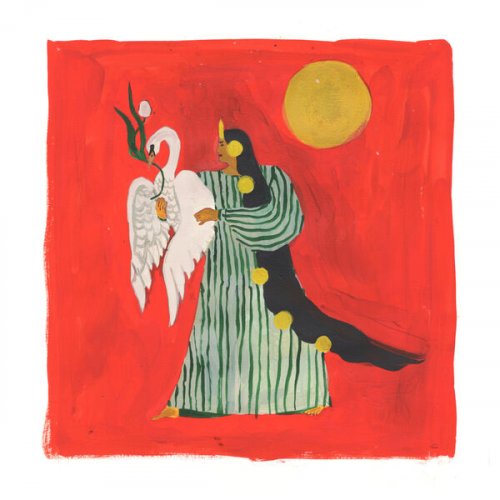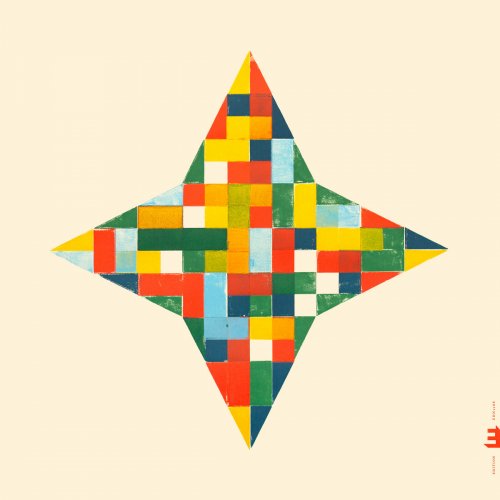Artist:
Billy Eckstine, Sarah Vaughan, Billy Eckstine & Sarah Vaughan
Title:
Passing Strangers
Year Of Release:
2024
Label:
RSK Entertainment
Genre:
Jazz, Vocal
Quality:
Mp3 320 / Flac (tracks)
Total Time: 02:26:14
Total Size: 360/449 Mb
WebSite:
Album Preview
Tracklist:CD 1:01. Billy Eckstine, Sarah Vaughan - Passing Strangers 2:40
02. Billy Eckstine, Sarah Vaughan - Slowly With Feeling 2:47
03. Billy Eckstine, Sarah Vaughan - No One But You 3:13
04. Billy Eckstine, Sarah Vaughan - Sinner Or Saint 2:58
05. Billy Eckstine, Sarah Vaughan - No Orchids for My Lady 3:04
06. Billy Eckstine, Sarah Vaughan - The Door Is Open 2:22
07. Billy Eckstine, Sarah Vaughan - Mighty Lonesome Feeling 2:48
08. Billy Eckstine, Sarah Vaughan - Bewildered 3:17
09. Billy Eckstine, Sarah Vaughan - My Funny Valentine 2:57
10. Billy Eckstine, Sarah Vaughan - Have a Good Time 3:10
11. Billy Eckstine, Sarah Vaughan - I'll Know 3:08
12. Billy Eckstine, Sarah Vaughan - You're All I Need 3:08
13. Billy Eckstine, Sarah Vaughan - Tenderly 3:48
14. Billy Eckstine, Sarah Vaughan - Exactly Like You 2:20
15. Billy Eckstine, Sarah Vaughan - A Fool in Love 3:27
16. Billy Eckstine, Sarah Vaughan - You Ought To Have A Wife 2:29
17. Billy Eckstine, Sarah Vaughan - Strange Sensation 2:50
18. Billy Eckstine, Sarah Vaughan - How Important Can It Be 2:31
19. Billy Eckstine, Sarah Vaughan - Coquette 3:11
20. Billy Eckstine, Sarah Vaughan - It Happened Again 2:29
21. Billy Eckstine, Sarah Vaughan - Old Devil Moon 2:37
22. Billy Eckstine, Sarah Vaughan - Fabulous Character 3:17
23. Billy Eckstine, Sarah Vaughan - Over the Rainbow 2:43
24. Billy Eckstine, Sarah Vaughan - Make Yourself Comfortable 3:20
CD 2:01. Billy Eckstine, Sarah Vaughan - Everything I Have Is Yours 3:15
02. Billy Eckstine, Sarah Vaughan - A-Hundred Years From Today 3:00
03. Billy Eckstine, Sarah Vaughan - Blue Moon 3:12
04. Billy Eckstine, Sarah Vaughan - Love Me Or Leave Me 3:02
05. Billy Eckstine, Sarah Vaughan - My Foolish Heart 3:06
06. Billy Eckstine, Sarah Vaughan - Trouble Is a Man 2:40
07. Billy Eckstine, Sarah Vaughan - I Apologise 2:53
08. Billy Eckstine, Sarah Vaughan - Button Up Your Overcoat 2:33
09. Billy Eckstine, Sarah Vaughan - A Fool That I Am 2:56
10. Billy Eckstine, Sarah Vaughan - I Get a Kick Out of You 2:51
11. Billy Eckstine, Sarah Vaughan - Caravan 2:53
12. Billy Eckstine, Sarah Vaughan - What a Difference a Day Makes 2:52
13. Billy Eckstine, Sarah Vaughan - I Wanna Be Loved 2:59
14. Billy Eckstine, Sarah Vaughan - Don't Worry 'Bout Me 2:59
15. Billy Eckstine, Sarah Vaughan - One for My Baby 3:40
16. Billy Eckstine, Sarah Vaughan - September Song 3:07
17. Billy Eckstine, Sarah Vaughan - Until Eternity 3:05
18. Billy Eckstine, Sarah Vaughan - Lover Man 3:27
19. Billy Eckstine, Sarah Vaughan - Laura 3:19
20. Billy Eckstine, Sarah Vaughan - Nature Boy 3:00
21. Billy Eckstine, Sarah Vaughan - You're All I Need 3:06
22. Billy Eckstine, Sarah Vaughan - Time After Time 3:05
23. Billy Eckstine, Sarah Vaughan - I'm a Fool to Want You 3:10
24. Billy Eckstine, Sarah Vaughan - I Feel So Smoochie 2:44
25. Billy Eckstine, Sarah Vaughan - I'm Falling For You 2:46
Billy Eckstine:
Billy Eckstine's smooth baritone and distinctive vibrato broke down barriers throughout the 1940s, first as leader of the original bop big band, then as the first romantic Black male in popular music. An influence looming large in the cultural development of soul and R&B singers from Sam Cooke to Prince, Eckstine was able to play it straight on his pop hits "Prisoner of Love," "My Foolish Heart" and "I Apologize." Born in Pittsburgh but raised in Washington, D.C., Eckstine began singing at the age of seven and entered many amateur talent shows. He had also planned on a football career, though after breaking his collar bone, he made music his focus. After working his way west to Chicago during the late '30s, Eckstine was hired by Earl Hines to join his Grand Terrace Orchestra in 1939. Though white bands of the era featured males singing straight-ahead romantic ballads, Black bands were forced to stick to novelty or blues vocal numbers until the advent of Eckstine and Herb Jeffries (from Duke Ellington's Orchestra).
Though several of Eckstine's first hits with Hines were novelties like "Jelly, Jelly" and "The Jitney Man," he also recorded several straight-ahead songs, including the hit "Stormy Monday." By 1943, he gained a trio of stellar bandmates -- Dizzy Gillespie, Charlie Parker, and Sarah Vaughan. After forming his own big band that year, he hired all three and gradually recruited still more modernist figures and future stars: Wardell Gray, Dexter Gordon, Miles Davis, Kenny Dorham, Fats Navarro, and Art Blakey, as well as arrangers Tadd Dameron and Gil Fuller. The Billy Eckstine Orchestra was the first bop big-band group, and its leader reflected bop innovations by stretching his vocal harmonics into his normal ballads. Despite the group's modernist slant, Eckstine hit the charts often during the mid-'40s, with Top Ten entries including "A Cottage for Sale" and "Prisoner of Love." On the group's frequent European and American tours, Eckstine also played trumpet, valve trombone, and guitar.
Though he was forced to give up the band in 1947 (Gillespie formed his own bop big band that same year), Eckstine made the transition to string-filled balladry with ease. He recorded more than a dozen hits during the late '40s, including "My Foolish Heart" and "I Apologize." He was also quite popular in Britain, hitting the Top Ten there twice during the '50s -- "No One But You" and "Gigi" -- as well as several duet entries with Sarah Vaughan. Eckstine returned to his jazz roots occasionally as well, recording with Vaughan, Count Basie, and Quincy Jones for separate LPs, and the 1960 live LP No Cover, No Minimum featured him taking a few trumpet solos as well. He recorded several albums for Mercury and Roulette during the early '60s (his son Ed was the president of Mercury), and he appeared on Motown for a few standards albums during the mid-'60s. After recording very sparingly during the '70s, Eckstine made his last recording (Billy Eckstine Sings with Benny Carter) in 1986. He died of a heart attack in 1993.
Sarah Vaughan:
Bop's greatest diva, Sarah Vaughan was among jazz and popular music's supreme vocalists. She treated her voice as an instrument, improvising melodic and rhythmic embellishments, using her contralto range to make leaps and jumps, changing a song's mood or direction by enunication and delivery, and altering her timbre. She turned sappy novelty tunes and light pop into definitive, jazz-based treatments. She had a distinctive swinging quality and intensity in her style, and was also a great scat singer. Vaughan was a dominant performer from the late '40s until the '80s, when illness forced her to cut back her appearances. Vaughan's recorded legacy stands with anyone in modern jazz history. She sang in the Mt. Zion Baptist Church choir as a child and became its organist at 12. Vaughan won the famous Amateur Night At The Apollo talent contest in 1942, and by April of the next year had joined Earl Hines' band as a second pianist and vocalist. When Billy Eckstine left Hines and formed his own band in 1944, Vaughan soon joined and made her recording debut with his orchestra at the end of December. She went solo a year later, and remained that way the rest of her career, except for a brief stint with John Kirby in 1945 and 1946. She became a star by performing pop ballads and show tunes, though she made numerous jazz anthems. Eckstine was a frequent duet partner, and the two collaborated on a fine Irving Berlin repertory record in the mid-'50s. Vaughan showed her jazz capabilities early in her solo career, recording a remarkable version of "Lover Man" with Dizzy Gillespie and Charlie Parker in 1945. But from 1949 to 1954, when she was with Columbia, she made hit albums with studio orchestras and cut only one jazz date with Miles Davis and Budd Johnson. When Vaughan switched labels to Mercury in 1954 she won the right to make light pop and straight jazz recordings. She did jazz material for EmArcy, recording with Clifford Brown, Cannonball Adderley and Count Basie's sidemen, while cutting pop tracks for Mercury. These included the 1958 smash "Broken-hearted Melody." Vaughan maintained similiar relationships with Roulette, Mercury and Columbia from 1960 to 1967. After a five year break, she returned to recording in 1971, this time with Norman Granz's Pablo label. Granz made many sessions with Vaughan through the '70s, some excellent, others not so good. She made a Duke Ellington Songbook, worked with Count Basie and Oscar Peterson and even did an album of Afro-Latin and Brazilian material. There was a marvelous two-record live set recorded in Japan. Her health worsened in the '80s, but she recorded an album of Gershwin songs with The Los Angeles Philharmonic in 1982 and an interesting concept/vocal album The Planet is Alive..Let It Live! in 1985 on Gene Lees Jazzletter label. This was an album of poems by Pope John Paul II adapted by Lees with music by Tito Fontana and Sante Palumbo. It featured Vaughan's vocals backed by an orchestra that included such jazz veterans as Art Farmer, Benny Bailey and Sahib Shihab. When Vaughan died in 1990, there were tributes and worldwide outpourings of grief. Her albums are being steadily reissued, from the formative '40s dates to the '70s sets. Mercury has issued the mammoth Complete Sarah Vaughan On Mercury collection, which breaks down her career at the label into eras with multi-disc packages for each period. The songbooks have been reissued, and Columbia has a two-disc package of material from the late '40s and early '50s. Single album reissues are also available from the '50s,'60s, and '70s.
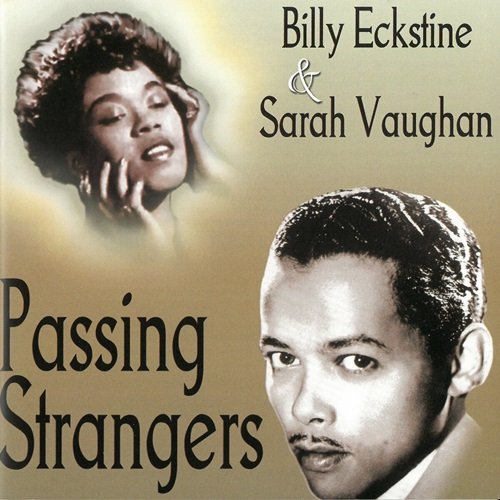

![Eero Koivistoinen - For Children (1970) [2006] Eero Koivistoinen - For Children (1970) [2006]](https://www.dibpic.com/uploads/posts/2026-02/1771615516_ff.jpg)
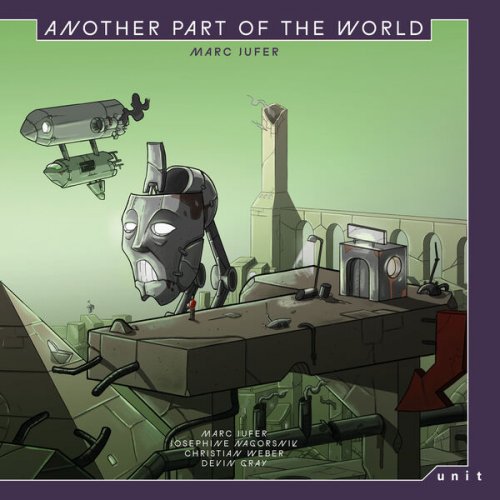
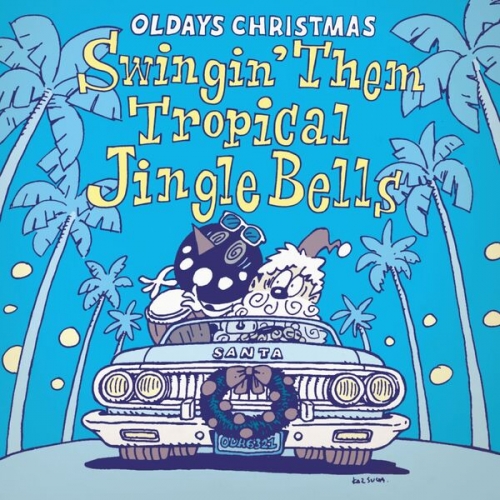
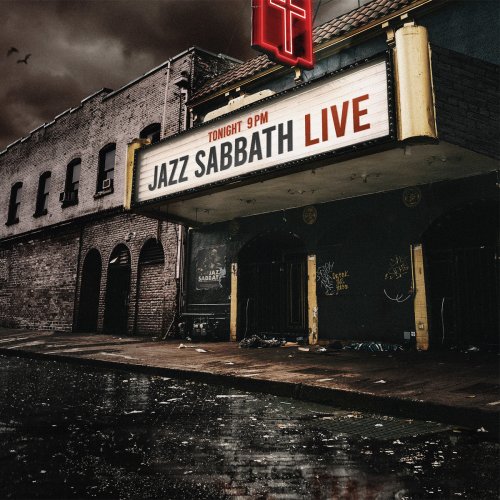
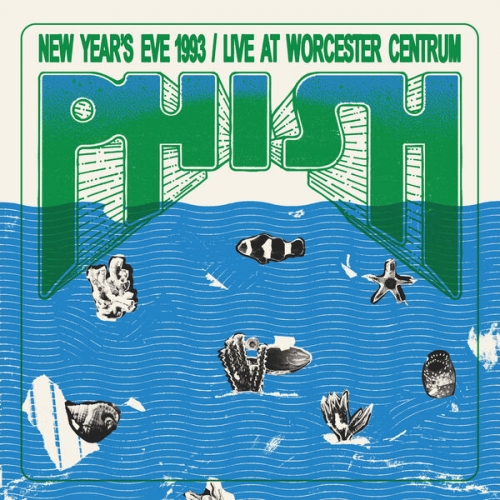
![Acid Mothers Reynols, Acid Mothers Temple, Reynols - Vol. 3 (2024) [Hi-Res] Acid Mothers Reynols, Acid Mothers Temple, Reynols - Vol. 3 (2024) [Hi-Res]](https://img.israbox.com/img/2026-02/21/vgzin7mjpuc9xi8v2ce3z1jc8.jpg)
![Ali Shaheed Muhammad, Adrian Younge - Cross: Season 2 (Prime Video Original Series Soundtrack) (2026) [Hi-Res] Ali Shaheed Muhammad, Adrian Younge - Cross: Season 2 (Prime Video Original Series Soundtrack) (2026) [Hi-Res]](https://img.israbox.com/img/2026-02/18/c61izyjkl1wnuz91hzkfnam7x.jpg)
